- Home
- Suzanne Collins
The Ballad of Songbirds and Snakes Page 7
The Ballad of Songbirds and Snakes Read online
Page 7
Coriolanus didn’t like sharing the spotlight, but Sejanus’s presence could protect him. Would Dean Highbottom give a demerit to the son of the man who had rebuilt the Academy? A few days ago he would’ve thought the name Snow carried more weight than Plinth, but the reaping assignments had proven him wrong. If Dean Highbottom wanted to call him on the carpet, he’d prefer to have Sejanus by his side.
“He’s my classmate, Sejanus Plinth,” he informed Lepidus.
“What’s he up to, bringing fancy sandwiches to the tributes? Surely, the Capitol feeds them,” said the reporter.
“Oh, for the record, I last ate the night before the reaping,” Lucy Gray announced. “So I guess it’s been three days.”
“Oh. Okay, well, you enjoy that sandwich!” said Lepidus. He signaled the camera to turn back to the other tributes.
Lucy Gray was on her feet in a flash, leaning into the bars and pulling back the focus. “You know, Mr. Reporter, what might be nice? If anybody has any food to spare, they might bring it on down to the zoo. No fun watching the Games if we’re all too weak to fight, don’t you think?”
“There’s some truth to that,” said the reporter, unsure.
“Me, I like sweet things, but I’m not picky.” She smiled and bit into her plum.
“Okay. Okay, then,” he said, easing away.
Coriolanus could tell the reporter was on shaky ground. Should he really be helping her solicit the citizens for food? Did it seem a condemnation of the Capitol?
As the news team moved to the other tributes, Lucy Gray settled back down across from him. “Too much?”
“Not for me. I’m sorry I didn’t think to bring you food,” he said.
“Well, I’ve been working my way through these rose petals when nobody’s looking.” She shrugged. “You didn’t know.”
They finished their food in silence, watching the reporter’s failed attempts at getting the other tributes to talk. The sun had set now, and a rising moon had taken over the lighting. The zoo would be closing soon.
“I was thinking that it might be a good idea for you to sing again,” said Coriolanus.
Lucy Gray sucked the last bit of flesh off the plum pit. “Mm-hmm, it might be, at that.” She dabbed the corners of her mouth with a ruffle and then straightened her skirt. Her usual playful tone shifted to a sober one. “So, as my mentor, what do you get out of this? You’re at school, right? So you get what? A better grade the more I shine?”
“Maybe.” He felt embarrassed. Here, in the relative privacy of the corner, he realized for the first time that she would be dead in a few days. Well, of course, he’d always known that. But he had thought about her more as his contender. His filly in a race, his dog in a fight. The more he had treated her as something special, the more she’d become human. As Sejanus had told the little girl, Lucy Gray was not really an animal, even if she was not Capitol. And he was here doing what? Showboating, like Dean Highbottom had said?
“I don’t even know what I get, really,” he told her. “They’ve never had mentors before. You don’t have to. Sing, I mean.”
“I know,” she said.
He still wanted her to, though. “But if people like you, they might bring you more food. We don’t have much extra at home.”
His cheeks burned in the dark. Why on earth had he admitted that to her?
“No? I always thought you had plenty to spare in the Capitol,” she said.
Idiot, he said to himself. But then he met her gaze and realized that, for the first time, she looked genuinely interested in him. “Oh, no. Especially not during the war. One time I ate half a jar of paste just to stop the pains in my stomach.”
“Yeah? How was it?” she asked.
That threw him, and he surprised himself by laughing. “Really sticky.”
Lucy Gray grinned. “I’ll bet. Still, sounds better than some of the stuff I made do with. Not to make this a competition.”
“Of course not.” He grinned back. “Look, I’m sorry. I’ll find you some food. You shouldn’t have to perform for it.”
“Well, this wouldn’t be the first time I sang for my supper. Not by a long shot,” she said. “And I do so love to sing.”
A voice came over the speaker to announce the zoo was closing in fifteen minutes.
“I ought to be going. But I’ll see you tomorrow?” he asked.
“You know where to find me,” she said.
Coriolanus rose and brushed off his pants. He shook out the handkerchief, folded it, and passed it through the bars to her. “It’s clean,” he assured her. At least she’d have something to dry her face with.
“Thanks. I left mine at home,” she replied.
Lucy Gray’s mention of home hung in the air between them. A reminder of a door she’d never reopen, loved ones she’d never see again. He couldn’t stand the thought of being torn from his own home. The apartment was the one place he unquestioningly belonged, his safe harbor, his family’s stronghold. Since he didn’t know how else to respond, he simply nodded good night.
Coriolanus had not gone twenty paces when he was stopped by the sound of his tribute’s voice, singing sweet and clear through the night air.
Down in the valley, valley so low,
Late in the evening, hear the train blow.
The train, love, hear the train blow.
Late in the evening, hear the train blow.
The audience, which had been trailing out, turned to listen to her.
Go build me a mansion, build it so high,
So I can see my true love go by.
See him go by, love, see him go by.
So I can see my true love go by.
Everyone had hushed now — the audience, the tributes. There was just Lucy Gray and the whir of the camera closing in on her. She still sat in their corner, her head leaning against the bars.
Go write me a letter, send it by mail.
Bake it and stamp it to the Capitol jail.
Capitol jail, love, to the Capitol jail.
Bake it and stamp it to the Capitol jail.
She sounded so sad, so lost. . . .
Roses are red, love; violets are blue.
Birds in the heavens know I love you.
Know I love you, oh, know I love you,
Birds in the heavens know I love you.
Coriolanus stood transfixed by the music and the rush of memories that accompanied it. His mother used to sing him a song at bedtime. Not this one, exactly, but it had used those same words, roses are red and violets are blue. It had mentioned loving him. He thought of the photo in the silver frame he kept on the nightstand by his bed. His beautiful mother, holding him when he was about two. They were looking at each other, laughing. Try as he might, he could never remember the moment the picture was taken, but this song caressed his brain, calling her from the depths. He could sense her presence, almost smell the delicate scent of the rose powder she wore, and feel the warm blanket of security that had enveloped him each night. Before she died. Before that awful stretch of days a few months into the war, when the first major rebel air raid had immobilized the city. When she went into labor, and they were unable to get her to the hospital, and something had gone wrong. Hemorrhage, maybe? A great deal of blood soaking the sheets and Cook and the Grandma’am trying to stop it and Tigris dragging him from the room. Then she was gone, and the baby — who would’ve been his sister — she was gone, too. The death of his father came right on the heels of his mother’s, but that loss had not hollowed out the world in the same way. Coriolanus still kept his mother’s compact in a drawer in his nightstand. In difficult times, when he had trouble falling asleep, he would click it open and inhale the rose scent of the silken cake of powder within. It never failed to calm him with the memory of how it had felt to be loved like that.
Bombs and blood. That was how the
rebels had killed his mother. He wondered if they had killed Lucy Gray’s, too. “Just her pearly white bones.” She seemed to have no love for District 12, always separating herself from it, saying she was, what was it . . . Covey?
“Thanks for stepping up.” Sejanus’s voice startled him. He had been sitting a few feet back, concealed by one of the boulders, listening to the song.
Coriolanus cleared his throat. “It was nothing.”
“I doubt any of our other classmates would’ve helped me,” Sejanus pointed out.
“None of our other classmates have even made an appearance,” Coriolanus replied. “That already sets us apart. What made you think of feeding the tributes?”
Sejanus looked down at the empty backpack by his feet. “Ever since the reaping, I keep imagining I’m one of them.”
Coriolanus almost laughed before he realized Sejanus was serious. “That seems like an odd pastime.”
“Can’t help it.” Sejanus’s voice dropped so low, Coriolanus had to strain to hear it. “They read my name. I walk to the stage. Now they’ve cuffed me. Now they’re hitting me for no reason. Now I’m on the train, in the dark, starving, alone except for kids I’m supposed to kill. Now I’m on display, with all these strangers bringing their children to stare at me through the bars. . . .”
The sound of rusty wheels turning drew their attention to the monkey house. A dozen or so bales of hay came bursting out of the chute and rolled into a heap on the cage floor.
“Look, that must be my bed,” said Sejanus.
“It isn’t going to happen to you, Sejanus,” Coriolanus told him.
“It could’ve, though. Easily. If we weren’t so rich now,” he said. “I would be back in District Two, maybe still in school or maybe in the mines, but definitely in the reaping. You saw my tribute?”
“He’s hard to miss,” admitted Coriolanus. “I think there’s a good chance he’ll win.”
“He was my classmate. You know, before I came here. Back home. His name’s Marcus,” Sejanus continued. “Not a friend exactly. But certainly not an enemy. One day I caught my finger in the door, smashed it good, and he scooped a cup of snow off the windowsill to bring down the swelling. Didn’t even ask the teacher, just did it.”
“Do you think he even remembers you?” said Coriolanus. “You were little. And a lot has happened since then.”
“Oh, he remembers me. The Plinths are notorious back home.” Sejanus looked pained. “Notorious and deeply despised.”
“And now you’re his mentor,” said Coriolanus.
“And now I’m his mentor,” Sejanus echoed.
The lights in the monkey house dimmed. A few of the tributes moved about, making nests of hay for the night. Coriolanus spotted Marcus drinking from the spigot, splashing water over his head. When he rose and crossed to the bales of hay, he dwarfed the others.
Sejanus gave the backpack a little kick. “He wouldn’t take a sandwich from me. He’d rather go into the Games starving than take food from my hand.”
“That’s not your fault,” said Coriolanus.
“I know. I know. I’m so blameless I’m choking on it,” said Sejanus.
Coriolanus was trying to unravel that thought when a fight broke out in the cage. Two boys had claimed the same bale of hay and had come to blows over it. Marcus intervened and, grabbing each by the collar, tossed them apart like a pair of rag dolls. They flew in the air, traveling several yards before landing in awkward heaps. As they slunk into the shadows, Marcus took the bale for his own bed, unimpressed by the scuffle.
“He’ll still win,” said Coriolanus. If he’d had any doubts, Marcus’s display of superior power had silenced them. He again felt the bitterness of a Plinth being granted the mightiest tribute. And he was tired of Sejanus’s whining over his father’s buying him the victor. “Any one of us would’ve been happy to get him.”
Sejanus brightened a bit. “Really? Then take him. He’s yours.”
“You’re not serious,” said Coriolanus.
“A hundred percent.” Sejanus sprang to his feet. “I want you to have him! And I’ll take Lucy Gray. It will still be horrible, but at least I don’t know her. I know the crowd likes her, but what good will that do her in the arena? There’s no way she’ll beat him. Trade tributes with me. Win the Games. Take the glory. Please, Coriolanus, I would never forget the favor.”
For a moment, Coriolanus could taste it — the sweetness of the victory, the cheers of the crowd. If he could make Lucy Gray a favorite, imagine what he could do with a powerhouse like Marcus! And really, what chance did she have? His eyes traveled to Lucy Gray leaning against the bars like a trapped animal. In the shadowy light, her color, her specialness, had faded, making her just another drab, bruised creature. Not much of a match for the other girls, even less so for the boys. The idea of her defeating Marcus was laughable. Like pitting a songbird against a grizzly bear.
His mouth was forming the word done, when he stopped.
To win with Marcus was no win at all. It took no brains, or skill, or even particular luck. To win with Lucy Gray would be an incredible long shot but historic if he pulled it off. Besides, was winning even the point? Or was it to engage the audience? Thanks to him, Lucy Gray was the current star of the Games, the most memorable tribute no matter who won. He thought of their hands locked together in the zoo as they took on the world. They were a team. She trusted him. He couldn’t imagine telling her he’d dumped her for Marcus. Or, even worse, telling the audience.
In addition, what guarantee did he have that Marcus would respond to him any more than he did to Sejanus? He seemed like just the kind to stonewall the lot of them. And then Coriolanus would look like a fool, begging for a crumb of attention from Marcus while Lucy Gray did pirouettes around Sejanus.
There was one more consideration. He had something Sejanus Plinth wanted, and wanted badly. Sejanus had already usurped his position, his inheritance, his clothes, his candy, his sandwiches, and the privilege due a Snow. Now he was coming for his apartment, his spot at the University, his very future, and had the gall to be resentful of his good fortune. To reject it. To consider it a punishment, even. If having Marcus as a tribute made Sejanus squirm, then good. Let him squirm. Lucy Gray was one thing belonging to Coriolanus that he would never, ever get.
“Sorry, my friend,” he said mildly. “But I think I’ll keep her.”
Coriolanus relished the disappointment on Sejanus’s face, but not for long, because that would’ve been petty. “Look, Sejanus, you may not think so, but this is me doing you a favor. Think about it. What would your father say if he found out you’d traded the tribute he’d lobbied for?”
“I don’t care,” said Sejanus, but it didn’t sound convincing.
“All right, forget about your father. What about the Academy?” he asked. “I doubt trading tributes is allowed. I’ve already been slapped with one demerit just for meeting Lucy Gray early. What if I tried to trade her? Besides, the poor thing is already attached to me. Dumping her would be like kicking a kitten. I don’t think I’d have the heart.”
“I shouldn’t have asked. I never even considered I might be making things difficult for you. I’m sorry. It’s just . . .” Sejanus’s words began to spill out. “It’s just this whole Hunger Games thing is making me crazy! I mean, what are we doing? Putting kids in an arena to kill each other? It feels wrong on so many levels. Animals protect their young, right? And so do we. We try to protect children! It’s built into us as human beings. Who really wants to do this? It’s unnatural!”
“It’s not pretty,” Coriolanus agreed, glancing around.
“It’s evil. It goes against everything I think is right in the world. I can’t be a part of it. Especially not with Marcus. I have to get out of it somehow,” Sejanus said, his eyes filling with tears.
His distress made Coriolanus uncomfortable, especially whe
n he valued his own chance to participate so highly. “You could always ask another mentor. I don’t think you’d have a problem finding a taker.”
“No. I’m not handing Marcus over to anyone else. You’re the only one I’d trust with him.” Sejanus turned to the cage, where the tributes had settled down for the night. “Oh, what does it matter anyway? If it’s not Marcus, it will be someone else. It might be easier, but it still won’t be right.” He collected his backpack. “I better get home. That’s sure to be pleasant.”
“I don’t think you’ve broken any rules,” said Coriolanus.
“I’ve publicly aligned myself with the districts. In my father’s eyes, I’ve broken the only rule that matters.” Sejanus gave him a small smile. “Thanks again, though, for helping me out.”
“Thank you for the sandwich,” said Coriolanus. “It was delicious.”
“I’ll tell Ma you said so,” said Sejanus. “It’ll make her night.”
Coriolanus’s own return home was somewhat marred by the Grandma’am’s disapproval of his picnic with Lucy Gray.
“To feed her is one thing,” she said. “To dine with her suggests that you consider her your equal. But she isn’t. There’s always been something barbaric about the districts. Your own father used to say those people only drank water because it didn’t rain blood. You ignore that at your own peril, Coriolanus.”
“She’s just a girl, Grandma’am,” Tigris said.
“She’s district. And trust me, that one hasn’t been a girl in a long time,” the Grandma’am replied.
Coriolanus thought uneasily of the tributes on the truck debating whether or not to kill him. They’d certainly demonstrated a taste for his blood. Only Lucy Gray had objected.
“Lucy Gray is different,” he argued. “She took my side in the truck when the others wanted to attack me. And she had my back in the monkey house, too.”
The Grandma’am held her ground. “Would she have bothered if you weren’t her mentor? Of course not. She’s a wily little thing who began to manipulate you the minute you met. Tread carefully, my boy — that’s all I’m saying.”

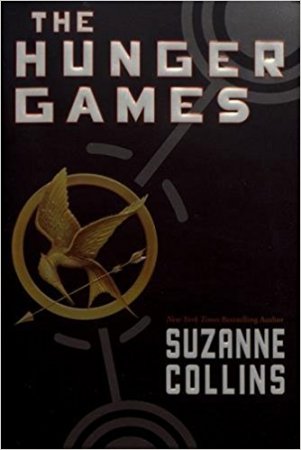 The Hunger Games
The Hunger Games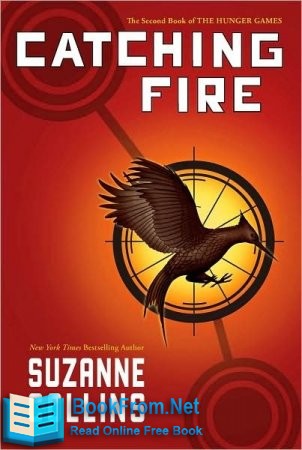 Catching Fire
Catching Fire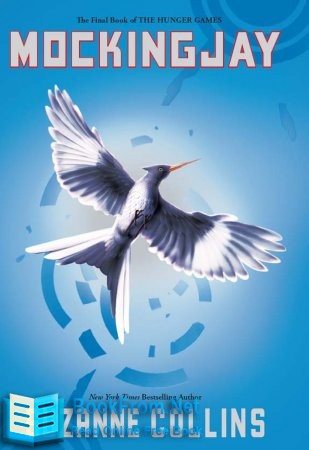 Mockingjay
Mockingjay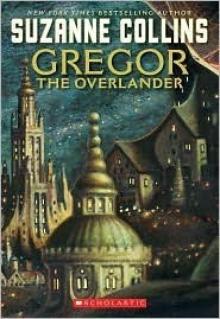 Gregor the Overlander
Gregor the Overlander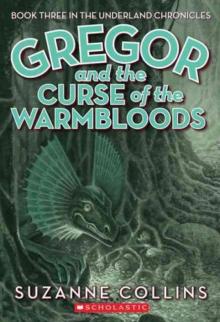 Gregor and the Curse of the Warmbloods
Gregor and the Curse of the Warmbloods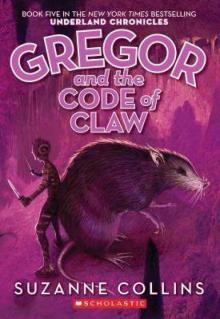 Gregor and the Code of Claw
Gregor and the Code of Claw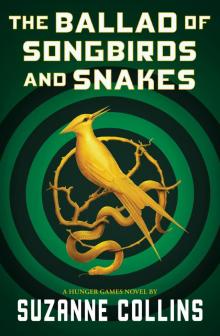 The Ballad of Songbirds and Snakes
The Ballad of Songbirds and Snakes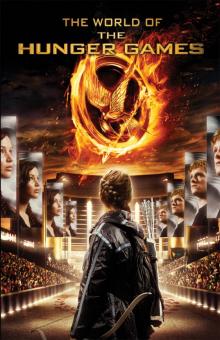 The World of the Hunger Games
The World of the Hunger Games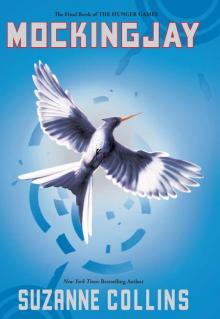 Mockingjay (The Final Book of The Hunger Games)
Mockingjay (The Final Book of The Hunger Games)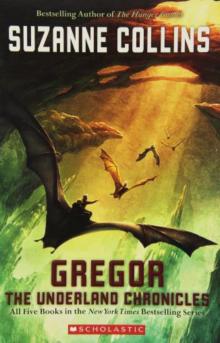 The Underland Chronicles: Books 1-5 Paperback Box Set
The Underland Chronicles: Books 1-5 Paperback Box Set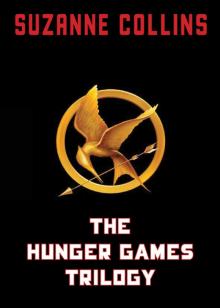 The Hunger Games Trilogy
The Hunger Games Trilogy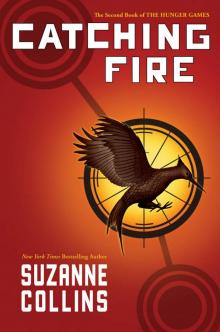 Hunger Games 02 - Catching Fire
Hunger Games 02 - Catching Fire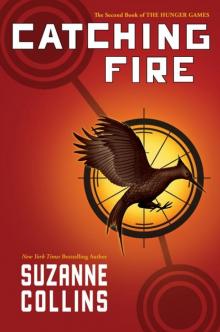 Cathing Fire thg-2
Cathing Fire thg-2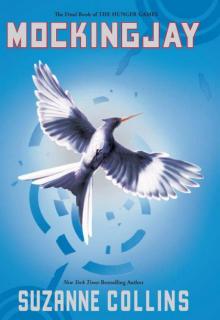 Hunger Games 03-Mockingjay
Hunger Games 03-Mockingjay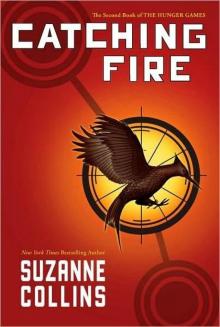 Hunger Games 2 - Catching Fire
Hunger Games 2 - Catching Fire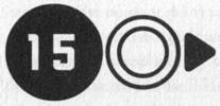 Hunger Games 01 - The Hunger Games
Hunger Games 01 - The Hunger Games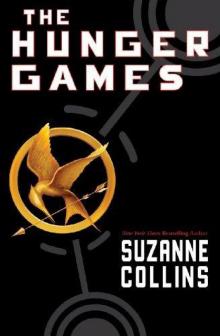 Hunger Games 01-The Hunger Games
Hunger Games 01-The Hunger Games